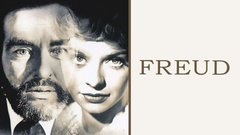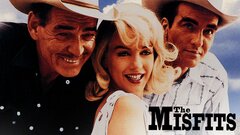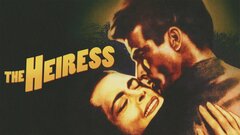Montgomery Clift

Actor
Birth Name: Edward Montgomery Clift
Birth Date: October 17, 1920
Death Date: July 23, 1966 — 45 years old
Birth Place: Omaha, Nebraska
Partners: Jack Larson, Phyllis Thaxter
One of Hollywood's first Method actors, Montgomery Clift rose to film stardom a full 10 years before his contemporary Marlon Brando, although a more naturalistic performance style and less prolific résumé prevented Clift from achieving the iconic status that many movie historians felt he rightfully deserved.
Emerging as a star on Broadway while still in his teens, Clift stubbornly rebuffed the courtship of several film studios for a decade, holding out for just the right project and working conditions. When he finally did succumb, it was to star alongside movie legend John Wayne in "Red River" (1948). A star from the release of his first film, Clift was immortalized on screen three years later as Elizabeth Taylor's morally challenged paramour in the romantic drama "A Place in the Sun" (1951). In the wake of these films, the handsome, brooding Clift became one of the biggest names in Hollywood with his Academy Award-nominated performance in the World War II melodrama "From Here to Eternity" (1953).
Tragically, Clift's fortunes fell almost as quickly as they rose. Following a nearly fatal, disfiguring car accident while filming the Civil War drama "Raintree County" (1957), the actor's already excessive reliance on alcohol and pharmaceuticals increased to debilitating levels. In the years that followed - most famously described as "the longest suicide in Hollywood history" - both Clift's health and professional reputation went into decline. Although still capable of delivering admirable performances in such projects as "The Misfits" (1961) and "Judgment at Nuremberg" (1961), the increasingly erratic actor eventually found himself being offered few roles prior to his death at the age of 45. Nonetheless, over the course of 17 films, Clift earned not only four Academy Award nominations, but also an indelible legacy as one of the finest actors to ever grace the silver screen.
Born Edward Montgomery Clift on Oct. 17, 1920 in Omaha, NE, he was the son of Ethel Fogg and William Brooks Clift, a successful Wall Street stockbroker. Adopted at the age of one, his mother was told by a well-intentioned doctor years later that she was the offspring of Southern aristocrats, so she chose to raise her own children accordingly. Home schooled by tutors in the U.S. and abroad during frequent trips to Europe, the Clift family's affluent lifestyle underwent a drastic change following the stock market crash of 1929. After moving to Florida, 13-year-old "Monty" tried his hand at acting for the first time with a local theater company. Impressed by his commitment to the work and natural ability as a performer, Ethel encouraged the boy to pursue the craft. Having moved to New England a short time later, Clift won a role in the 1935 production of "Fly Away Home," officially making his Broadway debut at the age of 14. More stage work soon followed, until a leading role in the comedy "Dame Nature" officially gave the young method actor star status on Broadway. Over the course of a decade, Clift fine-tuned his abilities and garnered a reputation as one of the theater's brightest young stars in Broadway productions that included "There Shall Be No Night" opposite Alfred Lunt and Lynn Fontanne, "The Skin of Our Teeth" with Tallulah Bankhead, the 1944 revival of "Our Town," and Tennessee Williams' "You Touched Me" in 1945.
As his acclaim on the stages of Broadway grew exponentially, so too did Hollywood's interest in Clift. However, with the exception of a performance of the Noel Coward comedy "Hay Fever" (NBC, 1939), he eschewed acting on screen, be it big or small. After a 10-year courtship with several studios, during which time Clift held out for both a script that intrigued him and the professional freedom to choose which directors he would work with, the actor finally accepted his first feature role. Filmed two full years prior to its release, "Red River" (1948) was directed by Howard Hawks and starred John Wayne as a patriarch at odds with his adopted son (Clift) in the midst of an arduous cattle drive from Texas to Missouri. Due to the film's delay in post-production, expectant audiences were given their first glimpse of the talented young actor with his official feature film debut in "The Search" (1948), directed by Fred Zimmerman. Clift's performance as a good-hearted G.I. caring for an orphaned boy in U.S.-occupied Germany after World War II garnered him critical raves, followed by equally impressive notices for his work alongside Wayne in "Red River." With his first two feature films, Clift had emerged a fully-formed Hollywood star. Putting the stamp of approval on his heralded arrival was Clift's Academy Award nomination for Best Actor in "The Search."
Clift's seemingly ambiguous sexuality had been a matter of speculation within the theatrical and film community for years, and his closeted homosexuality would be the source of some of the actor's deepest pain throughout his life. Initially rumored to have been his much older romantic interest, and later known as his confidant, advisor, and most importantly, acting coach, was Russian-born actress Mira Rostova. Having met Clift while performing together on stage in "Mexican Mural," Rostova took the then-22-year-old actor under her wing, coaching him throughout the remainder of his Broadway career and, at his insistence, following him out to Hollywood. Her effect on the trajectory of his career and professional relationships with his fellow actors and directors were frequently controversial and contentious. During the filming of his next picture, director William Wyler's "The Heiress" (1949), Clift's co-star, Olivia de Havilland vociferously complained about her leading man literally looking to his acting coach instead of her during their romantic scenes. Clift's work in the Berlin Airlift drama "The Big Lift" (1950) only became possible after he backed out of the leading role in Billy Wilder's classic "Sunset Blvd." (1950), the film that would make actor William Holden a star. To Rostova's mind, the story of a young man with Hollywood aspirations keeping house with an older woman too closely resembled Clift's reality, and cautioned him against it. Advice that, for better or worse, he took to heart.
Another of Clift's closest female friendships -- certainly the best known - was his personal connection with screen beauty Elizabeth Taylor. Already acquainted with the young actress, Clift and Taylor's friendship blossomed during the filming of director George Stevens' romantic melodrama "A Place in the Sun" (1951). A calculated effort to pair the two biggest sex symbols of the day on screen, the film, about the willingness of a working-class man (Clift) to do anything - even murder - in order to have a life with an achingly beautiful socialite (Taylor), provided the actor with his most iconic role and his second Oscar nomination. Their undeniable onscreen chemistry also gave birth to the persistent rumor that he and Taylor were romantically involved, prompting gossip columnists of the day to dub them "the most beautiful couple in Hollywood." Less successful at the box office was the controversial Alfred Hitchcock thriller "I Confess" (1953), in which Clift portrayed a priest framed for murder by the actual killer, a man who had previously admitted to the crime during confession. Accounts from the production of the film noted that the extremely meticulous and exacting Hitchcock found Clift's ill-defined Method acting an unwelcome distraction. Despite the unfulfilled promise of his experience with the great British director, Clift's next project would place him irrevocably within the pantheon of true cinema icons.
Cast as Pvt. Robert E. Lee Prewitt in Fred Zinnemann's "From Here to Eternity" (1953), Clift was mesmerizing as a devoted, but conflicted soldier who endures relentless hazing for his refusal to join his regiment's boxing club. A highly anticipated big screen adaptation of James Jones' novel about the lives of several troubled soldiers and their lovers in the months leading up to the attack on Pearl Harbor, the film boasted an all-star cast that in addition to Clift, featured Burt Lancaster, Deborah Kerr and Frank Sinatra. Clift was so respected for his acting talent by his peers that, reportedly, an intimidated Lancaster visibly shook with nervousness while shooting their scenes together. "From Here to Eternity" was a box office smash, and in retrospect, the pinnacle of Clift's still young film career. An actor's actor, he was only matched in the estimation of film critics by another Method acting adherent, fellow Nebraskan Marlon Brando; both were personally idolized by another rising star of the time, James Dean. The threesome would go on to be regarded as the masters of their craft, long after all three were gone. Clift's next film project, however, failed to capitalize on his newfound superstardom. Delayed for a year by producer David O. Selznick for a massive re-editing, the film by Italian director Vittorio de Sica was released in the U.S. as "Indiscretion of an American Wife" (1954), where it failed to connect with audiences. Screened in Italy as "Terminal Station," the romantic melodrama co-starred Selznick's wife Jennifer Jones, who reportedly developed a romantic infatuation with her handsome co-star, then flew into a rage when she discovered his true sexual preference. For his part, Clift despised the film, especially the clumsily edited Selznick version.
Clift found a modicum of artistic solace when he returned to the stages of New York in 1954 for an off-Broadway production of Chekhov's "The Seagull," which co-starred Rostova, who also provided a new translation for the Russian drama. Eventually, he came back to Hollywood and accepted another movie project with his good friend, Liz Taylor. It was midway through the production of that film that tragedy struck the talented star in 1956. Driving home along the twisting roads of the Hollywood Hills from a party thrown by Taylor, Clift was involved in a near-fatal car accident. Rushing to his side, along with friend and fellow actor Kevin McCarthy, Taylor shielded her bloodied friend from the paparazzi, even as she prevented him from choking on two of his dislodged teeth that had pierced his tongue. Clift's once-perfect face was horribly disfigured by the trauma, which required his jaw being wired and extensive plastic surgery. Production on the Civil War romantic drama "Raintree County" (1957) was suspended during Clift's painful and protracted recovery. Although the film performed reasonably well at the box office, critics were not impressed by what they considered an uninspired turn from the actor. Behind the scenes, Clift's already alarming dependence on alcohol and prescription medication only increased in the wake of his accident. Soon, his substance abuse would begin to affect not only his health, but his ability to perform.
Clift appeared noticeably frail as an aspiring journalist in "Lonelyhearts" (1958), and a bit too haggard for the role of the young soldier in "The Young Lions" (1958). The latter film, in which he played a Jewish G.I. enduring anti-Semitism in both his personal life and in the military, marked Clift's first and only appearance on screen with Marlon Brando. The actor reteamed with his good friend Taylor - who had to persuade a reluctant studio to hire him - for what would be the final time in the adaptation of Tennessee Williams' Southern Gothic potboiler "Suddenly Last Summer" (1959). Filming was difficult for Clift, and after the final day of shooting, an incensed Katherine Hepburn reportedly spit in director Joseph L. Mankiewicz' face as recompense for mistreating the fragile actor so badly. Clift then co-starred with Lee Remick in director Elia Kazan's "Wild River" (1960), before joining fellow screen legends Clark Gable and Marilyn Monroe in John Huston's haunting Western requiem, "The Misfits" (1961). The trouble-plagued film would be the last for both Gable and Monroe, with the former dying of a massive heart attack just 10 days after production wrapped, and the latter a year and a half later from a barbiturate overdose. Understandably, "The Misfits" was one of the most highly-anticipated movies of the year. It was, however, met with a combination of derision and perplexity upon its release, only to be heralded as one of the finest efforts of all involved decades later by film historians.
Despite his shaky professional reputation, Clift was still capable of delivering riveting film performances, as evidenced by his appearance in director Stanley Kramer's holocaust trial drama, "Judgment at Nuremberg" (1961). Clift's one brief scene - for which he took no salary - earned him his fourth Academy Award nomination, this time in a supporting role as a Jewish concentration camp survivor who was sterilized by the Nazis. It was both ironic and more than a little sad that Clift's own troubled mental state made his portrayal of the brain-addled Rudolph Petersen all the more convincing. By all accounts, Clift's once laser-focused concentration as an actor was now gone, his behavior became more erratic and his drinking became a problem on the set. Huston, who had grown fond of the actor during the production of "The Misfits" and was a heavy drinker himself, was one of the few filmmakers willing to take a chance on the falling star, and cast Clift as the "father of modern psychiatry" in the biopic "Freud" (1962). Relations between the actor and director soon deteriorated, however, as did Clift's relationship with the studio, Universal, which at one point sued the actor for delays and costs incurred, they claimed, as a result of Clift's chronic health problems and inability to work. In the aftermath of the debacle, his professional reputation was in such disrepair that few major studios would even consider hiring him. Once again, Taylor came to his rescue, when she used her considerable Hollywood clout to secure Clift a role opposite her in the film "Reflections in a Golden Eye" (1967). Eager to take on what he hoped would be a comeback role of sorts, Clift kept busy by first taking the lead in another film while waiting for production on "Reflections" to begin.
An unremarkable Cold War-era espionage thriller, "The Defector" (1966) would, unfortunately, be Clift's final performance on film. Shortly after primary production had been completed, Clift returned to his New York townhouse. After retiring to his room for the evening, Clift was asked - through a closed door - by his personal assistant if he wanted to watch his film "The Misfits," which was airing on television that night. "Absolutely not!" was the actor's reply. They were the last words anyone would hear him speak. On July 23, 1966, his body was discovered lying unclothed atop his bed with his reading glasses on. An autopsy report would later find that he had died of a heart-attack. While it was likely that his longtime substance abuse greatly contributed to his poor health and eventual demise, many who knew him also felt that the often-contradictory and unforgiving demands of his career were also largely to blame. Perhaps expressing the sentiment best was noted columnist of the day, Sheilah Graham, who wrote of his passing, "It would have been better for this sensitive man that he had never come to Hollywood, never heard the shrill trumpet of success and the canned laughter of this desperate insecure society." Then again, the world would have been deprived of several of the most nuanced and affecting performances ever committed to film. Actor Montgomery Clift was 45 years old.
Credits

Cine Clásico

The Defector

El Desertor

Freud

Judgment at NurembergStream

The MisfitsStream

Wild RiverStream

Suddenly, Last SummerStream

LonelyheartsStream

The Young LionsStream

Raintree County

From Here to EternityStream

Indiscretion of an American Wife

I ConfessStream

A Place in the SunStream

What's My Line?Stream

The Big Lift

The Heiress

Red RiverStream












































































































































































































































































































